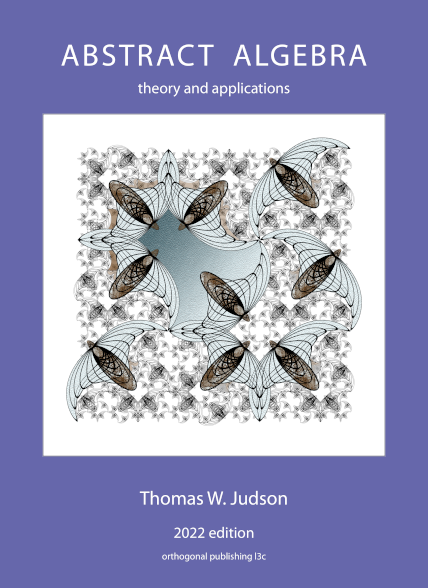Chapter 21 Fields
It is natural to ask whether or not some field \(F\) is contained in a larger field. We think of the rational numbers, which reside inside the real numbers, while in turn, the real numbers live inside the complex numbers. We can also study the fields between \({\mathbb Q}\) and \({\mathbb R}\) and inquire as to the nature of these fields.
More specifically if we are given a field \(F\) and a polynomial \(p(x) \in F[x]\text{,}\) we can ask whether or not we can find a field \(E\) containing \(F\) such that \(p(x)\) factors into linear factors over \(E[x]\text{.}\) For example, if we consider the polynomial
in \({\mathbb Q}[x]\text{,}\) then \(p(x)\) factors as \((x^2 - 2)(x^2 - 3)\text{.}\) However, both of these factors are irreducible in \({\mathbb Q}[x]\text{.}\) If we wish to find a zero of \(p(x)\text{,}\) we must go to a larger field. Certainly the field of real numbers will work, since
It is possible to find a smaller field in which \(p(x)\) has a zero, namely
We wish to be able to compute and study such fields for arbitrary polynomials over a field \(F\text{.}\)
